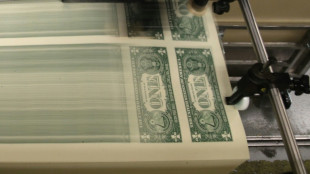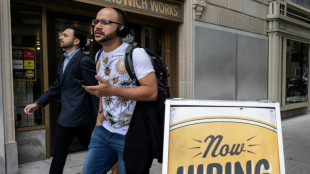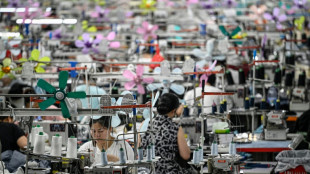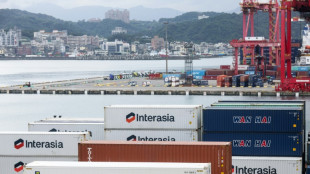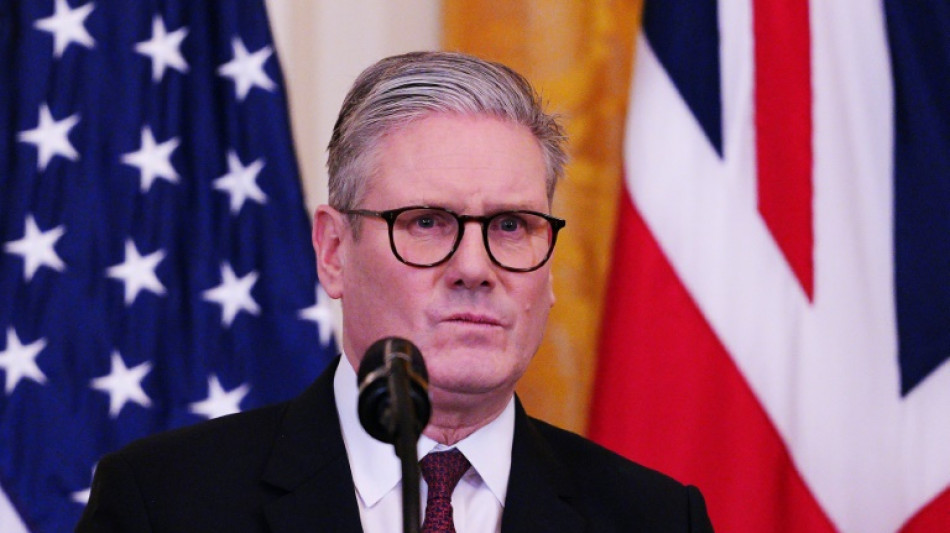

UK avoids worst US tariffs post-Brexit, but no celebrations
More than four years after the UK's withdrawal from the European Union became effective, Britain has escaped harsher US tariffs, facing only half of the 20 percent imposed on its EU neighbours.
But London's cautious response to the 10 percent tariffs imposed Wednesday by US President Donald Trump highlights its delicate juggling act between its two largest trading partners.
The Labour government is keen to avoid jeopardising negotiations over a post-Brexit trade deal with Washington.
"I recognise the announcements by the president last night put the UK in a relatively better position than, for instance, the EU," Business Secretary Jonathan Reynolds told Sky News.
Although he called the 10 percent levy "a disappointment," it is significantly lower than the 20 percent levy on the EU and the 34 percent levy on China.
Prime Minister Keir Starmer told business chiefs on Thursday that "clearly there would be an economic impact" from the tariffs, but avoided stronger comments made by other major economic powers that hinted at retaliation.
With Britain receiving the lowest band of tariffs, the opposition party, the Conservatives, has touted it as a post-Brexit win.
Andrew Griffith, the Conservatives business and trade spokesman, said the US's approach on tariffs was a "vindication" for Brexit.
The Labour government, which won power in July, had a more muted response.
"I'm happy that we, in the UK, can set our own specific trade policy in our own interests ... but, look, this is much bigger than the UK's relationship to the European Union," Reynolds told Times Radio on Thursday.
For Britain, "it's a 'win' in that we would be worse off if we were still in the EU," Jonathan Portes, professor of economics at King's College London, told AFP.
"But of course the main point is that this is lose-lose for everybody," he added, as tariffs threaten to stifle economic growth.
- Washington or Brussels? -
Starmer visited Washington at the end of February and came away hopeful a long-awaited accord could be reached.
Trump himself held out the prospect of a "great" deal that could avoid tariffs on Britain, hailing Starmer as a tough negotiator.
Portes explained that the lower tariff rate has "nothing to do with any negotiations or special treatment," and instead, relates to the fact the UK does not have a goods trade surplus with the US.
The US accounted for 15 percent of the UK's goods exports and 10 percent of its goods imports in 2023, according to the latest annual data from the Office for National Statistics.
The British government has reiterated that it does not need to choose between the Washington and Brussels.
But some economists have warned that concessions to the United States could spook partners in the EU, which remains by far the UK's largest trading partner.
"Right now it would be better to pursue a deeper EU trade relationship to make up for the economic hit," from American customs duties, said David Henig, director of the UK Trade Policy Project.
The government is consulting with exporters on the impact of possible retaliatory action.
"If we are in a position to agree an economic deal with the US that lifts the tariffs that have been placed on our industries, this request for input will be paused and any measures flowing from that will be lifted," Reynolds said.
Trade body Make UK said the tariffs were "devastating for UK manufacturing."
"It will destroy decades of integrated supply chains connecting the UK with US through other trading partners such as the EU, Canada and Mexico," said chief executive Stephen Phipson.
H.Klein--MP

